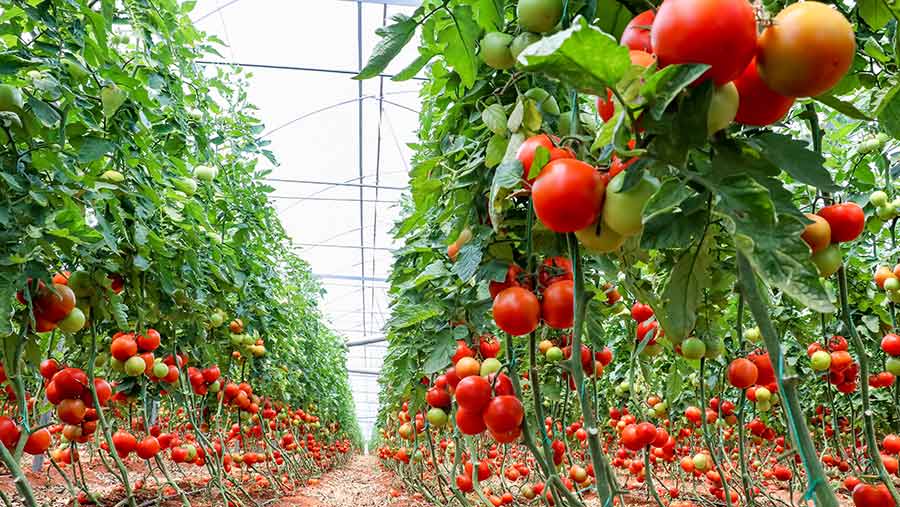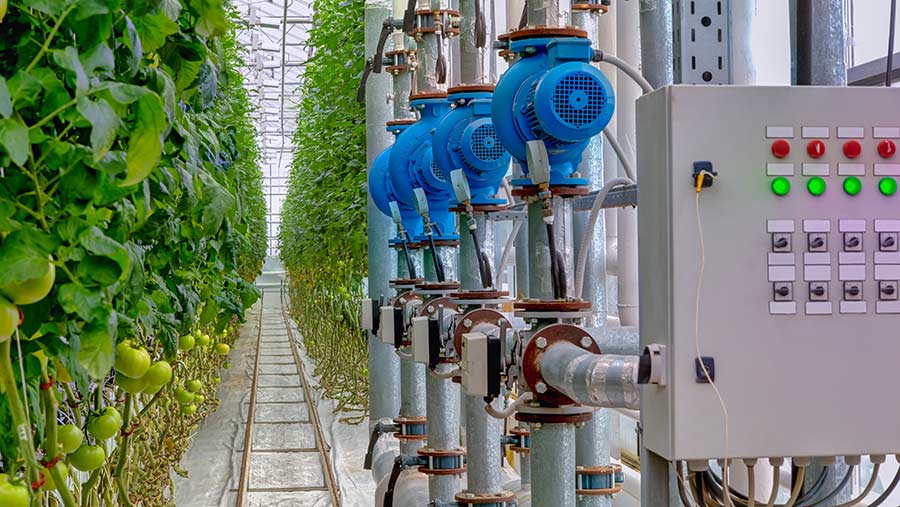Fruit and veg fears as key support scheme set to go
 © Adobe Stock
© Adobe Stock Investing in innovations and new equipment is a challenge when an industry operates on wafer-thin margins, but if another party is footing half of the bill, it is much more likely.
That is especially true for UK fruit and vegetable production where, since 1997, the sector has benefited from the EU-funded Fresh Fruit and Vegetables Aid Scheme.
This is designed to help growers who collaborate through a producer organisation (PO) to fund investments in storage and processing facilities, develop new varieties and hire specialist staff.
See also: Grants available to cover up to 50% of cost for wide range of kit
It is widely seen as a principal reason behind the major expansion that has occurred in the production of certain crops, such as soft fruit.
The tonnage of strawberries harvested, for example, has trebled from 40,000t to 120,000t during the lifetime of the scheme.
“It has allowed for enormous investment, which has kept us ahead of the game,” says Jack Ward, chief executive of the British Growers Association.
But, while legislation enabled the scheme to continue after Brexit, the UK government now intends to close it in England at the end of 2025.
No new operational programmes to improve market efficiency are to be approved in England from 1 January 2024, as the government winds it down, (though programmes that ended in December 2023 or will end in 2024 can be rolled on until the end of 2025).
Defra insists it has every intention of introducing a replacement in England, and in early February convened a meeting of individuals and organisations across the fruit and vegetable industry to discuss future options and outcomes for a successor scheme.
But the horticulture sector is desperate for more clarity on what a successor scheme might offer – if it comes at all.
Uptake
There is a lot of money at stake. In 2022, the UK drew down more than £40m from the scheme as funding for 34 POs, although this figure was dwarfed by the €180m (£154m) Spain, Italy and France each claimed.
A reason why the UK didn’t take greater advantage of the money available is the requirements that are needed for PO status to be granted, such as a minimum of five members.
“Some sectors in the UK, such as carrots and brassicas, only have a handful of major growers,” says Mr Ward.
Another stipulation is that all sales must go through a single marketing desk controlled by the PO.
“Some businesses aren’t willing to surrender control of relationships with customers that might have taken 20 years or more to build up, and that is understandable,” he explains.
By contrast, Mediterranean countries have lots of comparatively small growers, many who welcome the opportunity to collaborate and, with it, the chance to secure supply contracts with major retailers.
If a replacement is not up and running when the current aid scheme ends, UK growers will be at a competitive disadvantage to those European producers who will continue to draw down match-funding.
“With a few changes, the UK’s version of the scheme could be used to address a lot of issues, from climate change mitigation through to research and development and capital investment.
“It would not be that difficult to do,” reasons Mr Ward.

© Adobe Stock
Grant funding
Agricultural law firm Roythornes has advised more than 15 mostly England-based POs and keeps a close eye on legal and policy developments affecting the UK fruit and vegetable sector.
Partner Julie Robinson fears that, instead of the government creating a dedicated scheme for horticultural businesses, it will offer grants to farmers through the Farming Investment Fund (FIF), such as the Farming Equipment and Technology Fund and Improving Farm Productivity grants.
But Ms Robinson says that, unlike the current targeted scheme that enables planned investment in research, green innovations and productivity-enhancing facilities, the FIF doesn’t offer the same opportunity for groups of producers to work together and plan investment over a multi-year period.
Although it is early days, there are implications for existing POs if no similar replacement scheme is announced, she advises.
If they were set up with the sole intention of drawing down funding, they might question the rationale for continuing in their current form.
However, Ms Robinson suggests that POs have afforded members many benefits such as shared production planning systems, collaborative marketing, and joint investments.
Regulations
But, while the aid scheme has given a massive cash injection to the fruit and vegetables sector, the restrictive regulations that accompany it have been less well received – for example, setting minimum levels for the percentage of an individual member’s production that must be sold through the PO.
Although the death knell has been sounded on the scheme, there is nothing to stop growers forming new POs.
In fact, the Rural Payments Agency has said they can continue to be set up, says Ms Robinson.
She sees a lot of merit in PO membership, including the valuable exemptions they provide from UK competition law.
“These exemptions were introduced following Brexit to make sure that farmer collaborations that had been exempt from competition law under EU legislation continue enjoying the same protection under domestic law,” she says.
The exemptions cover activities that might otherwise fall foul of anti-competitive practices, such as collaborative production planning, marketing and supply contract negotiation.
The collaborative element of POs should not be underestimated, Ms Robinson suggests.
“There is strength in producers working together, not least the sharing of the cost of investments such as packing lines.”
Hope
The hope is that the government will follow through on its commitment to create a replacement for the Fruit and Vegetables Aid Scheme, to allow POs to continue to enjoy these benefits, as well as the financial support.
It has been mooted that any new scheme could even be broadened to bring in more growers, but Mr Ward says, if this happens, more money must be made available.
Defra has said that it recognises there are aspects of the current scheme that may not be deliverable through “existing offers” open to the horticulture sector and it would, therefore, consider how these could be retained, or even improved upon.
“It has given us slightly more confidence that we are heading in the right direction,” says Mr Ward. “I am moderately hopeful that we will have a scheme in place for 2026.”
Producer organisation sets out the scheme advantages
Berry Garden Growers was recognised as a producer organisation (PO) under the Fruit and Vegetables Aid Scheme in 1996.
With 34 grower members, it is now one of Britain’s most successful farmer co-operatives, with sales of £173m. in 2022
Its managing director, Patrick Bastow, says the UK’s soft fruit sector is a good example of how the scheme has contributed to the development of UK horticulture, with about 90% of soft fruit growers now in a PO.
“This high uptake of PO participation has been a major factor in the substantial growth in UK production and increased the value of UK soft fruit,” he suggests.
Substantial investment, supported by PO operational programme funding, had enabled producers to grow 95% of their crops in glasshouses or fixed polythene tunnels, and to invest in table-top substrate production systems for strawberries.
“PO funding has been critical and provided additional capital to growers to help fund these investments. It has accelerated these at a faster rate than growers could fund themselves,” Mr Bastow adds.
It has also encouraged uptake of advanced irrigation systems and biological controls. At Berry Gardens Growers it has helped to fund a team of agronomists and a trial site.
Alternative scheme
Mr Bastow questions whether POs will continue to fund such initiatives if Defra doesn’t come up with a credible alternative to the Fruit and Vegetables Aid Scheme.
Opting instead for a competitive grant scheme structure that offers only “short bursts of funding with no guarantee of another round of funding”, would be detrimental to the take-up of new technologies, he reckons.
“If a new technology becomes available, under the Fruit and Vegetables Aid Scheme, we can table an amendment to our operational programme and buy it.
“It allows a lot more flexibility and agility than competition grant schemes, and a more speedy response to new development.”
But it does have some limitations – unlike grants, assets purchased through the scheme cannot be included on an individual firm’s balance sheet, while capital purchases made with grants can, he points out.
However, if Defra doesn’t maintain a scheme with a similar offering, Mr Bastow predicts further contraction in an industry that is experiencing a lowering of production resulting from cost pressures.
